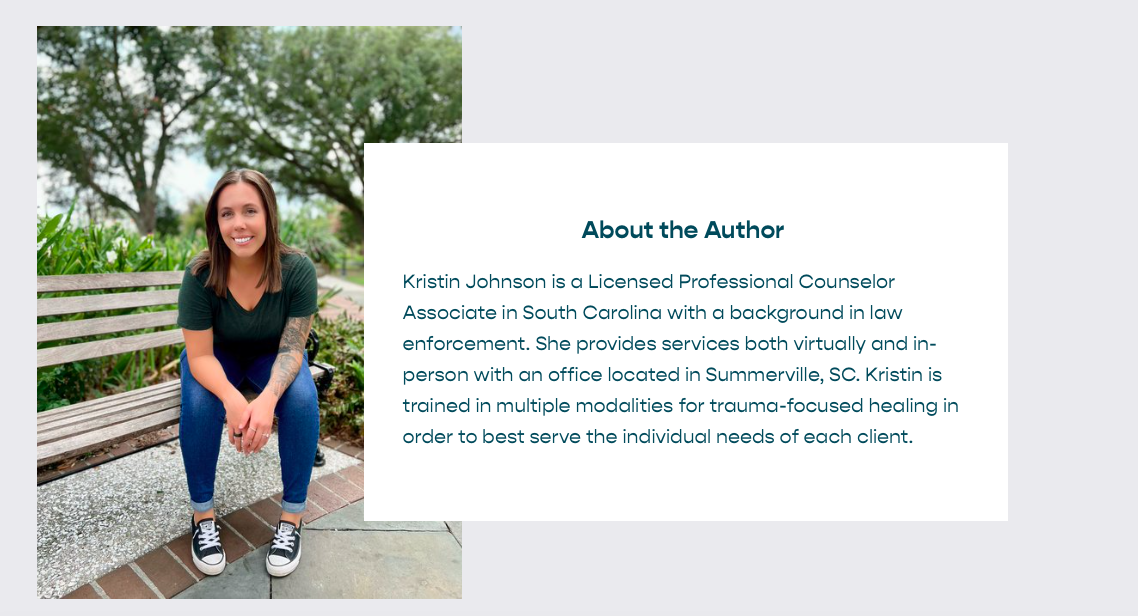What is EMDR Therapy, and is it right for you?
When it comes to addressing the lingering effects of trauma, whether from a critical incident or childhood experiences, you may feel stuck in a cycle of distressing memories, emotional pain, or negative beliefs about yourself. Eye Movement Desensitization and Reprocessing (EMDR) therapy offers a way to break free from these patterns and find relief from the symptoms you are currently experiencing. But what exactly is EMDR therapy? How does it work? And is it the right fit for you? Let’s dive into these questions to help you better understand this effective approach to healing.
What is EMDR Therapy?
EMDR therapy is an evidence-based treatment designed to help individuals process and heal from trauma and distressing life events. Developed by Dr. Francine Shapiro in the late 1980s, EMDR has been extensively researched and is recognized as a highly effective treatment for trauma, PTSD, anxiety, depression, and other mental health challenges. You can read more about the extensive research on the effectiveness of EMDR here.
Unlike traditional talk therapy, EMDR therapy focuses on reprocessing painful memories rather than just discussing them. By targeting how these memories are stored in the brain, EMDR helps reduce their emotional intensity, enabling you to move forward with a greater sense of peace and resilience.
How Does EMDR Therapy Work?
EMDR therapy consists of eight structured phases that guide the healing process:
History-Taking and Treatment Planning: Your therapist will work with you to identify the specific memories, beliefs, or symptoms you want to address.
Preparation: This phase focuses on building trust and ensuring you have tools to manage distressing emotions during therapy.
Assessment: Together, you and your therapist will identify the target memory and associated negative beliefs or emotions.
Desensitization: Using bilateral stimulation (eye movements, tapping, etc), your brain will reprocess the distressing memory, helping reduce its emotional charge.
Installation: Positive beliefs and emotions are reinforced to replace the negative ones.
Body Scan: You’ll check in with your body to ensure there’s no lingering distress.
Closure: Each session ends with grounding techniques to help you leave feeling stable and secure.
Reevaluation: Progress is reviewed to determine if additional targets need to be addressed.
This structured approach allows EMDR to facilitate healing in a safe and supportive environment. Many clients report significant relief after just a few sessions, though the timeline varies depending on individual needs.
Benefits of EMDR Therapy
Healing Trauma at Its Core: EMDR targets the root cause of distress rather than just managing symptoms.
Reduced Emotional Intensity: Reprocessing distressing memories makes them less overwhelming and distressing. The memory of the event will not be erased, it will just be less overwhelming.
Improved Self-Beliefs: EMDR helps replace negative beliefs (e.g., "I am powerless") with healthier, empowering ones.
Efficient Progress: Many clients experience significant changes in a shorter timeframe compared to traditional therapy.
Non-Invasive: EMDR does not require detailed recounting of the traumatic event, which can feel overwhelming for some clients.
FAQs About EMDR Therapy
1. Is EMDR only for PTSD?
No, EMDR can address a variety of challenges, including anxiety, depression, phobias, and unresolved childhood trauma. It’s also effective for individuals who have experienced critical incidents or high-stress situations.
2. Do I have to talk about my trauma in detail?
Not necessarily. While you’ll identify target memories, EMDR focuses more on how these memories are stored in your brain rather than discussing every detail.
3. How long does EMDR therapy take?
The duration varies based on your unique needs and goals. Some clients see results in a few sessions, while others may need more time to work through multiple memories or challenges.
4. Is EMDR emotionally overwhelming?
EMDR is designed to be a manageable and supportive process. However, it can be exhausting! Your brain is doing A LOT of work in session, so keep in mind, it is completely normal to feel tired later that day or even the next day (everyone responds differently to treatment). Your therapist should ensure you feel prepared and safe at every step.
Is EMDR Therapy Right for You?
If you’re feeling weighed down by the past, and find yourself experiencing anxiety or depression symptoms that you feel may be related to unresolved trauma, EMDR therapy could be the right choice for you. It offers a compassionate, effective way to process trauma, reduce emotional distress, and embrace a more positive future.
As a therapist specializing in trauma, and licensed in South Carolina, I’m here to help you determine if EMDR is the right fit for your journey. Together, we can create a safe and supportive space for you to heal and grow.
Schedule a free consultation today (only available for South Carolina residents) to learn more about EMDR therapy and how it can help you reclaim your life. You don’t have to face this alone.
Looking to connect with a therapist who specializes in EMDR?
Take the first step towards the healing you deserve
(South Carolina residents only)

